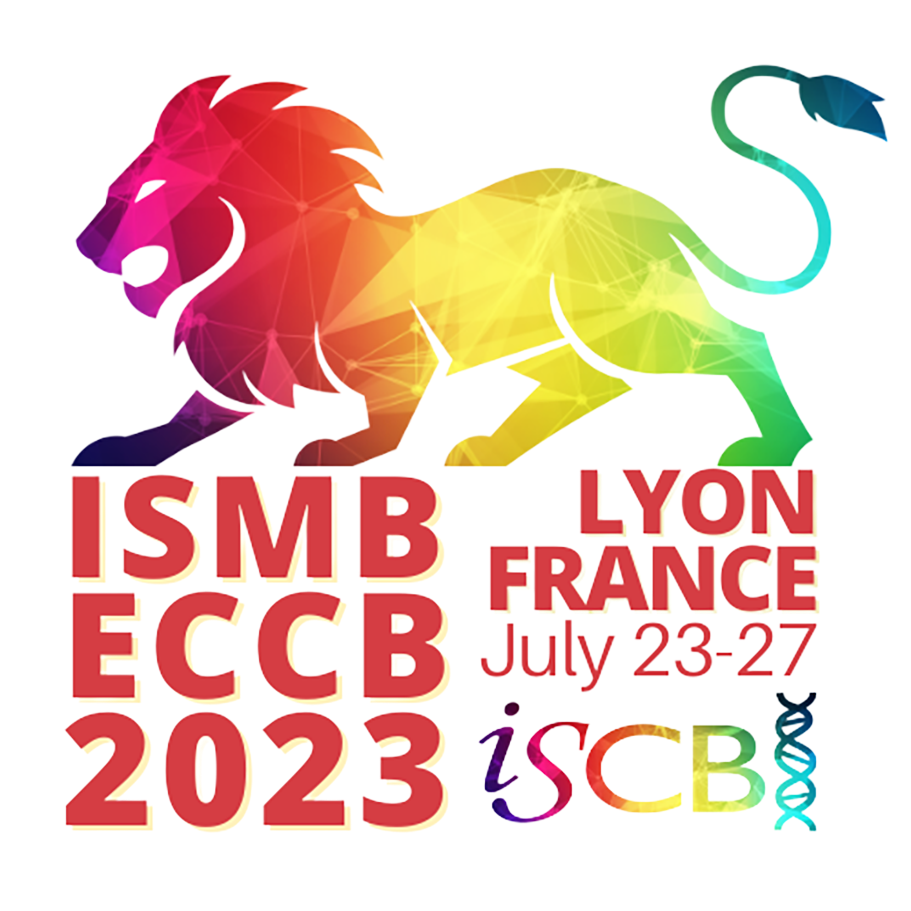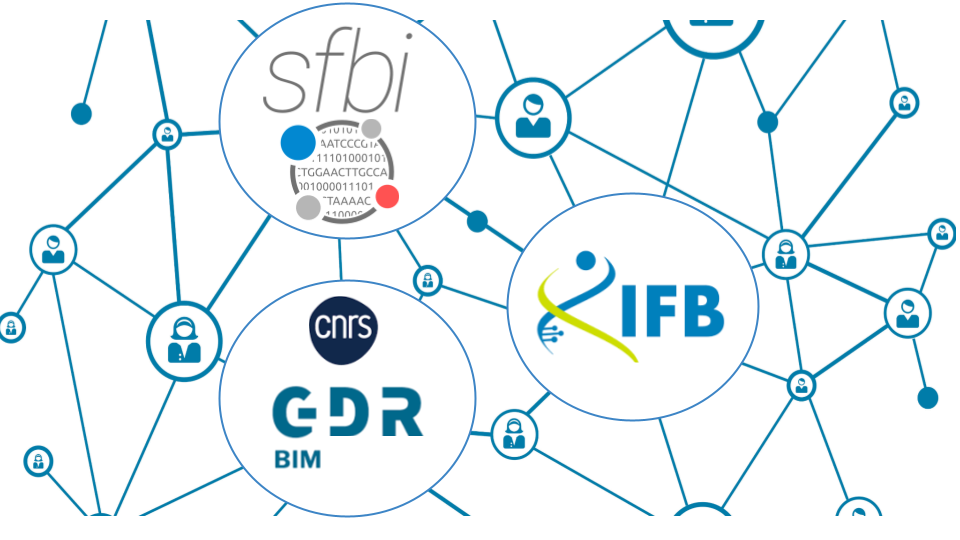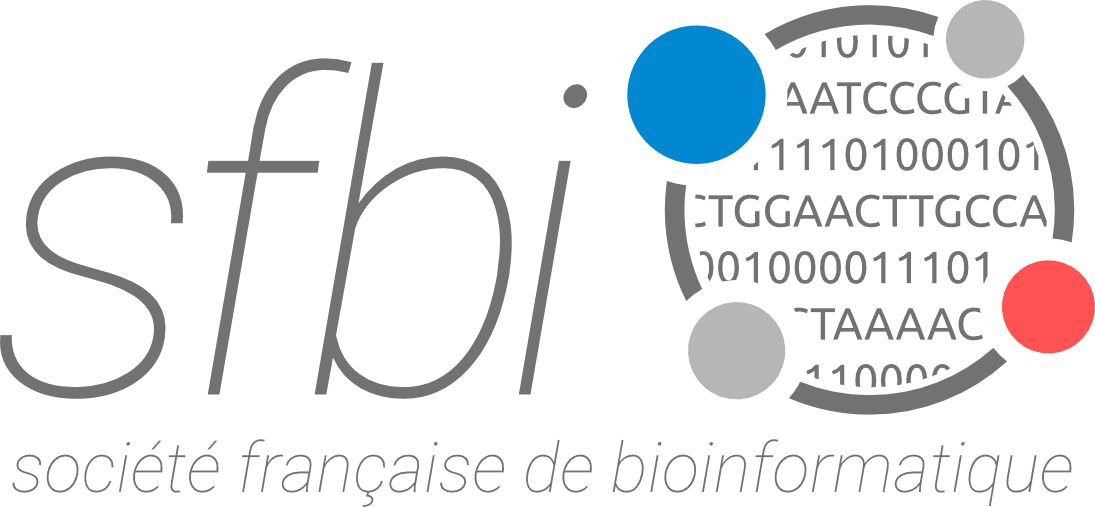ISMB/ECCB2023


Special session :"Bioinformatics in France"
Tuesday, July 25 2023
The French bioinformatics community is rich and diverse. It brings together many actors from the academic and industry domains. The "Bioinformatics in France" is a ISMB/ECCB2023 special session organized by the SFBI (French Society of Bioinformatics) and it will give a broad view of bioinformatics in France.
This afternoon session is open to all ISMB/ECCB attendees. First, the actions and goals of the main French groups in bioinformatics (SFBI, GdR-BIM, IFB-Elixir) will be presented. Then, we will invite you to listen to researchers from our community who will share their latest and most innovative research work. All the session will have that very special “french flavor”.
To take the time to exchange, we will continue our discussions during a poster session followed by a French style culinary evening. In addition to its scientific dynamism, we hope to show you how friendly our community is.
Keywords: France, community, Elixir, ecology and evolution, genomics, metagenomics, population genomics, algorithms, knowledge representation, databases, structural bioinformatics and proteomics, machine learning, systems biology
Important dates
| Thursday, April 20, 2023 | Abstracts Submission Deadline |
| Monday, April 24, 2023 | Late Poster Submissions Open |
| Thursday, May 11, 2023 | Poster Acceptance Notifications |
| Thursday, May 18, 2023 | Late Poster Submissions Deadline |
| Thursday, May 25, 2023 | Late Poster Acceptance Notifications |
Organizing Committee

Program - Tuesday, July 25
| 1:50 pm | Opening speech - Anna-Sophie Fiston-Lavier, Sandra Dérozier, Marie-France Sagot & Guy Perrière |
| 2:00 pm | French Society of Bioinformatics (SFBI) - Anna-Sophie Fiston-Lavier & Sandra Dérozier |
| 2:20 pm | French Research Group in Bioinformatics (GDR-BIM) |
| 2:30 pm | European network of bioinformatics platforms (IFB-elixir) - Anne-Francoise Adam-Blondon |
| 3:00 pm | Flash talks #1- Statistical inference of repeated sequence contacts in Hi-C maps (Hi-C BERG) - Sébastien Gradit |
| 3:10 pm | Flash talks #2 - The impact of similarity metrics on cell type clustering in highly multiplexed in situ imaging cytometry data - Elijah Willie |
| 3:20 pm | Flash talks #3 - Towards a machine learning approach for automated detection of well-to-well contamination in metagenomic data - Lindsay Goulet |
| 3:30 pm | Coffee Break |
| 4:00 pm | Flash talks #4 - Integrating metagenetic datasets through microbial association networks to compare microbial communities from lacto-fermented vegetables - Romane Junker |
| 4:10 pm | Flash talks #5 - GORi: automated biological characterization of gene signatures under the scope of multiple controlled vocabularies - Yanis Asloudj |
| 4:20 pm | Flash talks #6 - Tools for analysing spatial data in the context of immuno-oncology - Abdel Mounim Essabbar |
| 4:30 pm | Keynotes speakers - Design and application of deep neural networks for population genetics - Flora Jay |
| 5:15 pm | Keynotes speakers - RNA Bioinformatics: Still combinatorial in 2023? - Yann Ponty |
| 6:00 pm | Poster session |
| 7:00 pm | French event (by invitation only) |
Keynotes
- Flora Jay -
CR CNRS, LISN, Université Paris-Saclay
(LISN= Laboratoire Interdisciplinaire des Sciences du Numérique / interdisciplinary computer science laboratory)

"Design and application of deep neural networks for population genetics"
As population genetic datasets keep increasing in size, it is common to observe millions of genomic markers sequenced for hundreds of individuals, opening the possibility of answering intricate biological questions. However, extracting relevant information from these genomic datasets is not trivial due to their size, the complexity of the underlying mechanisms, and sometimes impossible due to privacy rules that govern several human genome databases. Deep learning approaches have recently been introduced at different levels of population genetics for parameter inference, data visualization, or generation. I will give a short overview of current applications of discriminative and generative neural networks in this field and present some advances we made in designing architectures for evolutionary inference and data generation.
- Yann Ponty -
DR CNRS, LIX, Institut Polytechnique de Paris
(LIX = Laboratoire d'informatique de l'Ecole Polytechnique)

"RNA bioinformatics: Still combinatorial in 2023?"
Predictive Bioinformatics is currently under the dominion of machine learning, leveraging massive datasets to learn weight-valued neural networks to achieve superior average predictions. Such impressive feats sometimes come at the cost of inferior explanability, communicability and, in some cases, generalizability, silently impeding our collective capacity to investigate beyond well-studied (data-rich) subareas of biology. Accordingly, bioinformatics is slowly adapting its standards and evaluation metrics to detect, assess the extent of, and mitigate these shortcomings.
RNA structural bionformatics currently stands out as an exception. While many ML-fueled efforts for RNA 2D structure prediction were recently published in high-impact venues, independent validation efforts revealed reproducibility and generalizability issues. Correcting those issues lead to very limited performance gains (if any) when compared to textbook physics-inspired dynamic programming. Moreover, even for the rather "holistic" task of 3D structure prediction, results of the inaugural CASP RNA competition suggest that RNA structure may be less conducible to deep-learning than proteins, possibly even for intrinsic reasons.
In this talk, I will give a broad overview of the current state of RNA structure prediction and design. I will showcase analyses and algorithmic ideas that, in my opinion, are equally powerful as they are underutilized. I will conclude with more philosophical considerations regarding the role of prediction in bionformatics. I may passionately argue for a perception of our field that extends beyond a set of tasks to be solved "at all cost".
Only poster submissions will be accepted. Few abstracts will be selected for flash presentations.
The SFBI provides a limited number but high discount codes for the all SFBI members before the 30 March 2023. Discount codes are still available for permanents (e.g. Researchers, lecturers or engineers... /CDI or CDD) until the 31th of May. Click here to apply for a discount code.
You need to get the discount code prior the registration on the ISBM/ECCB2023 website. No discount will be applied after this date. Participants can choose to register to join live in Lyon or virtually. However, no discount will be applied on virtual registration fees.
| In-person | ISMB/ECCB fees (without VAT) | Final fees for SFBI members |
| members ISCB - professional | €735.00 | €335.00 |
| members ISCB - postdoc | €635.00 | €335.00 |
| members ISCB - student | €535.00 | €235.00 |
| non-members ISCB - professional | €935.00 | €435.00 |
| non-members ISCB - postdoc | €835.00 | €435.00 |
| non-members ISCB - student | €635.00 | €335.00 |
*ISCB membership
Fellowships
For ISCB members, ISCB also offers conference (travel and registration) fellowships to any member in good standing with priority going to members from low or middle income countries as well as students and postdoctoral fellows to attend the ISMB/ECCB 2023 conference.
Sponsors




Contact / Follow us on twitter #French-ISMBECCB2023